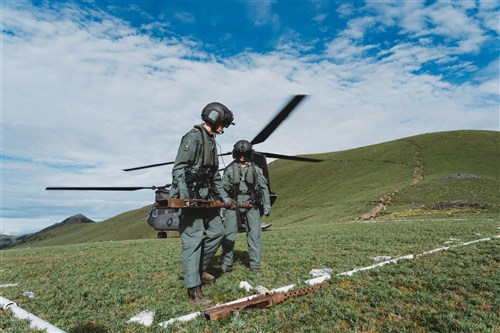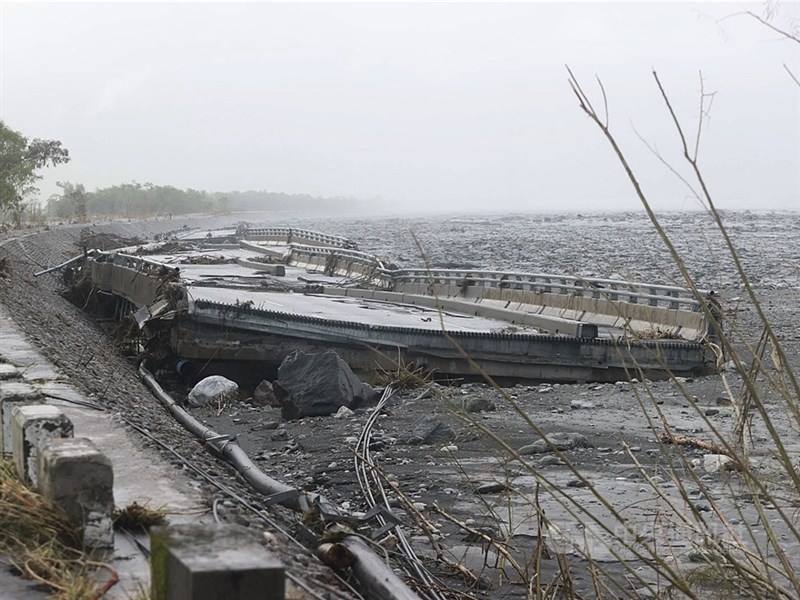FEATURE/A Chip Odyssey: New documentary captures Taiwan's journey to chipmaking dominance
06/12/2025 07:01 PM
"A Chip Odyssey," (造山者-世紀的賭注) Taiwan's first documentary spotlighting its world-leading semiconductor industry, will premiere nationwide Friday after five years of production amid a turbulent global climate.
(Full text of the story is now in CNA English news archive. To view the full story, you will need to be a subscribed member of the CNA archive. To subscribe, please read here.)
More in FEATURE
![Amid obstacles, Taiwan businessman still seeking WWII tragedy closure]() Amid obstacles, Taiwan businessman still seeking WWII tragedy closureWorld War II may have ended 80 years ago, but for businessman Hsu Shun-lung (許順隆), it continues to echo in Taiwan through a tragedy that has yet to be brought to a final resolution.12/27/2025 09:48 AM
Amid obstacles, Taiwan businessman still seeking WWII tragedy closureWorld War II may have ended 80 years ago, but for businessman Hsu Shun-lung (許順隆), it continues to echo in Taiwan through a tragedy that has yet to be brought to a final resolution.12/27/2025 09:48 AM![End of an era: Tai Tzu-ying and her legacy]() End of an era: Tai Tzu-ying and her legacyLate Friday night, former world No. 1 female badminton player Tai Tzu-ying (戴資穎) officially announced her decision to hang up her racket via social media, drawing to a close a professional career that has spanned over half of her 31 years of life.11/08/2025 05:00 PM
End of an era: Tai Tzu-ying and her legacyLate Friday night, former world No. 1 female badminton player Tai Tzu-ying (戴資穎) officially announced her decision to hang up her racket via social media, drawing to a close a professional career that has spanned over half of her 31 years of life.11/08/2025 05:00 PM![Hualien flood leaves Taiwan grappling with disaster response gaps]() Hualien flood leaves Taiwan grappling with disaster response gapsOn Sept. 23, a historic downpour caused the Matai'an Barrier Lake in Hualien to burst its banks, sending 60 million tons of water and debris through Guangfu Township and killing at least 19 people.10/16/2025 05:02 PM
Hualien flood leaves Taiwan grappling with disaster response gapsOn Sept. 23, a historic downpour caused the Matai'an Barrier Lake in Hualien to burst its banks, sending 60 million tons of water and debris through Guangfu Township and killing at least 19 people.10/16/2025 05:02 PM
Latest
- Business
Taiwan's Starlux Airlines to launch flights to Prague on Aug. 1
02/04/2026 09:28 PM - Business
Taiwan companies optimistic on enclosed-cabin scooter plan
02/04/2026 08:58 PM - Cross-Strait
MAC slams '1992 Consensus' push after CCP, KMT top figures meet in Beijing
02/04/2026 08:43 PM - Society
'Shanlan' tourism train arrives in Tainan
02/04/2026 08:37 PM - Business
NT$6 food delivery fee wins NT$10 million in Taiwan's lottery invoice
02/04/2026 08:22 PM


